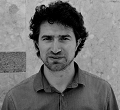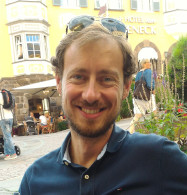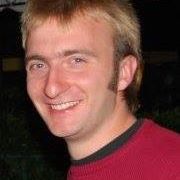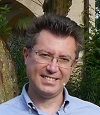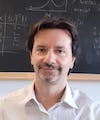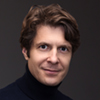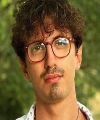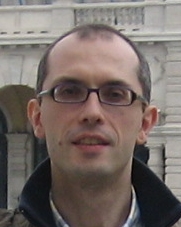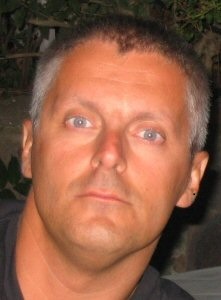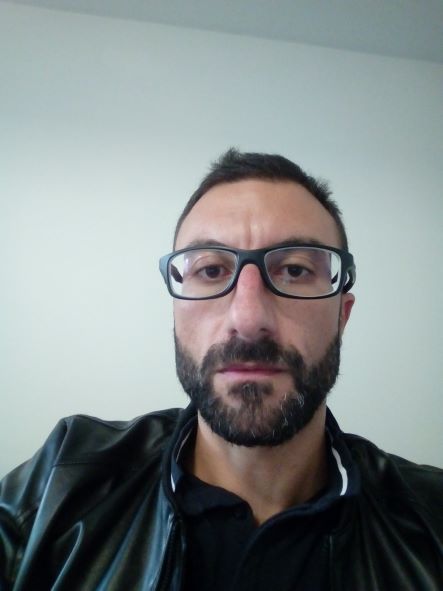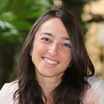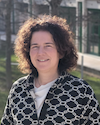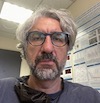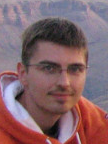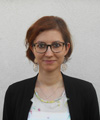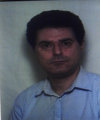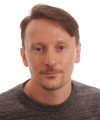Studying at the University of Verona
Here you can find information on the organisational aspects of the Programme, lecture timetables, learning activities and useful contact details for your time at the University, from enrolment to graduation.
Academic calendar
The academic calendar shows the deadlines and scheduled events that are relevant to students, teaching and technical-administrative staff of the University. Public holidays and University closures are also indicated. The academic year normally begins on 1 October each year and ends on 30 September of the following year.
Course calendar
The Academic Calendar sets out the degree programme lecture and exam timetables, as well as the relevant university closure dates..
| Period | From | To |
|---|---|---|
| Semester 1 | Oct 3, 2022 | Jan 27, 2023 |
| Semester 2 | Mar 6, 2023 | Jun 16, 2023 |
| Session | From | To |
|---|---|---|
| Sessione invernale d'esame | Jan 30, 2023 | Mar 3, 2023 |
| Sessione estiva d'esame | Jun 19, 2023 | Jul 31, 2023 |
| Sessione autunnale d'esame | Sep 4, 2023 | Sep 29, 2023 |
| Session | From | To |
|---|---|---|
| Sessione Estiva | Jul 18, 2023 | Jul 18, 2023 |
| Sessione Autunnale | Oct 13, 2023 | Oct 13, 2023 |
| Sessione Invernale | Mar 13, 2024 | Mar 13, 2024 |
| Period | From | To |
|---|---|---|
| Ponte Festa di tutti i Santi | Oct 31, 2022 | Nov 1, 2022 |
| Ponte dell'Immacolata Concezione | Dec 8, 2022 | Dec 9, 2022 |
| Vacanze natalizie | Dec 23, 2022 | Jan 8, 2023 |
| Vacanze di Pasqua | Apr 7, 2023 | Apr 10, 2023 |
| Festa della Liberazione | Apr 24, 2023 | Apr 25, 2023 |
| Festa del lavoro | May 1, 2023 | May 1, 2023 |
| Festa del Santo Patrono | May 21, 2023 | May 21, 2023 |
| Festa della Repubblica | Jun 2, 2023 | Jun 2, 2023 |
| Chiusura estiva | Aug 14, 2023 | Aug 19, 2023 |
Exam calendar
Exam dates and rounds are managed by the relevant Science and Engineering Teaching and Student Services Unit.
To view all the exam sessions available, please use the Exam dashboard on ESSE3.
If you forgot your login details or have problems logging in, please contact the relevant IT HelpDesk, or check the login details recovery web page.
Academic staff
 mariano.ceccato@univr.it
mariano.ceccato@univr.it
 giovannigerardo.muscolo@univr.it
giovannigerardo.muscolo@univr.it
 daniela.pianezzi@univr.it
daniela.pianezzi@univr.it
 claudio.tomazzoli@univr.it
claudio.tomazzoli@univr.it
Study Plan
The Study Plan includes all modules, teaching and learning activities that each student will need to undertake during their time at the University.
Please select your Study Plan based on your enrollment year.
1° Year
| Modules | Credits | TAF | SSD |
|---|
2° Year activated in the A.Y. 2023/2024
| Modules | Credits | TAF | SSD |
|---|
| Modules | Credits | TAF | SSD |
|---|
| Modules | Credits | TAF | SSD |
|---|
| Modules | Credits | TAF | SSD |
|---|
Legend | Type of training activity (TTA)
TAF (Type of Educational Activity) All courses and activities are classified into different types of educational activities, indicated by a letter.
Electronic devices and sensors (2022/2023)
Teaching code
4S009021
Credits
6
Language
English
Scientific Disciplinary Sector (SSD)
ING-INF/01 - ELECTRONIC ENGINEERING
The teaching is organized as follows:
Teoria
Laboratorio
Learning objectives
The course aims to educate students on advanced theoretical and technological aspects of integrated electronic devices and sensors of signals and data. The main objective of the course is therefore to provide the principles of physics of integrated devices, knowledge of the technology of optical, thermoelectric, magnetic and gas sensors, their interface with advanced software applications as well as the methods of use of the same in the environment robotic and manufacturing. Upon completion of the course, the student would demonstrate the acquisition of the fundamental knowledge of the technology, functioning and applications of integrated electronic devices and sensors. This knowledge will allow the student to: i) understand the behavior of integrated electronic devices; ii) select and apply sensors for the acquisition of signals and data in a robotic and manufacturing environment; iii) interface sensors to signal and data processing applications. After this course, the student will have acquired the ability to independently assess the advantages and disadvantages of different technological and design solutions in the field of integrated electronic devices and signal and data acquisition sensors. In addition, he will be able to: i) carry out a group laboratory project and present its results by motivating the choices made with language appropriateness: ii) autonomously continue the study and research in the field of integrated electronic devices and acquisition of signals and data, addressing advanced issues both in the industrial and scientific fields.
Prerequisites and basic notions
In order to properly follow the lectures it is strongly recommended to have already acquired knowledge on classical physics (laws of motion, work, energy, electric field, electric potential).
Program
In order to properly follow the lectures it is strongly recommended to have already acquired knowledge on classical physics (laws of motion, work, energy, electric field, electric potential).
The course consists of theoretical section and two different experimental sections in the lab (simulation and hardware).
Topics:
Elements of Classical Physics and Atomic Physics: work and energy, electric field and potential, electric current, Ohm's law, linear circuits resistivity and temperature dependence in metals and semiconductors, the Bohr model, the periodic table of the elements
Crystal structure and electrical properties of metals, semiconductors and doped semiconductors: gas model of electrons in metals as a link model in semiconductors, concept of gap, doped semiconductors, nods to the band theory, conduction current and dissemination
P-n junction: non-polarized and polarized junction, ddp contact, voltage-current characteristic in forward and reverse bias, junction diode, Zener diode, OR / AND gates to diodes, switching times
Bipolar junction transistor BJT, input curves and in common emitter configuration output, common base, inverter, transfer rates characteristic and noise margins, switching times
Transitor in the field of JFET and MOSFET effect, manufacturing techniques, output and transfer curves, MOSFET and CMOS inverters, transfer characteristics, noise margins, switching times
Elementary digital circuits in MOS technology, CMOS, bipolar, ECL: NOR and NAND MOSFET and CMOS, NAND DTL, HTL, TTL, OR / NOR ECL
Comparison of logic families: propagation delay, power dissipation, fan-out, noise margins
-Laboratory (software) with circuit simulation with Micro Cap (12 hours).
-Laboratory (hardware) with circuit fabrication on pre-prepared electronic cards (12 hours).
The complete teaching material is available on the e-learning portal.
Bibliography
Didactic methods
The lessons are frontal, theoretical with explanations of practical applications and they take place in the class. It will be possible for those who would be unable to follow, since tested positive for covid-19, to request supplementary didactic material.
Learning assessment procedures
The exam will be an oral interview on the topics addressed during the course and will be divided into two: -a part on the basic knowledge of semiconductor and transistor physics.
If you pass the first test you get to the second part: In the second part you will be asked for a paper on a topic developed during the course, for example the technology of a particular sensor or device. The student will present the thesis through a presentation (for example in power point) and will be asked the physical principles of operation of the semiconductors and electronic devices discussed. Attention: the preparation of the thesis alone is not enough to pass the exam, you need to know what was explained in class.
Evaluation criteria
Knowledge of semiconductor theory will be evaluated, and above all technical and scientific applications such as the manufacture of sensors, devices, automatic machines.
Criteria for the composition of the final grade
Evaluation of the proposed thesis and of the basic knowledge of the course program.
Exam language
English
Type D and Type F activities
The educational activities of type D are chosen by the student, those of type F are further knowledge useful for entering the world of work (internships, soft skills, project works, etc.). According to the Didactic Regulations of the Course, some activities can be chosen and included autonomously in the booklet, others must be approved by a special committee to verify their consistency with the study plan. Type D or F educational activities can be covered by the following activities.
1. Teachings taught at the University of Verona.
Include the teachings listed below and/or in the Course Catalogue (which can also be filtered by language of delivery via Advanced Search).
Booklet entry mode: if the teaching is included among those listed below, the student can include it autonomously during the period in which the study plan is open; otherwise, the student must submit a request to the Secretariat, sending the form to carriere.scienze@ateneo.univr.it during the period indicated.
2. CLA certificate or language equivalency.
In addition to those required by the curriculum, the following are recognized for those matriculated from A.Y. 2021/2022:
- English language: 3 CFUs are recognized for each level of proficiency above the one required by the course of study (if not already recognized in the previous course of study).
- Other languages and Italian for foreigners: 3 cfu are recognized for each proficiency level starting from A2 (if not already recognized in the previous study cycle).
These cfu will be recognized, up to a maximum of 6 cfu in total, as type F if the teaching plan allows, or as type D. Additional elective credits for language knowledge may be recognized only if consistent with the student's educational project and if adequately justified.
Those enrolled until A.Y. 2020/2021 should consult the information found here.
Booklet entry mode: request the certificate or equivalency to the CLA and send it to the Student Secretariat - Careers for career entry of the exam, via email: carriere.scienze@ateneo.univr.it
3. Soft skills
Discover the training paths promoted by the University's TALC - Teaching and learning center, intended for students regularly enrolled in the academic year of course delivery https://talc.univr.it/it/competenze-trasversali
Booklet entry mode: the teaching is not expected to be included in the curriculum. Only after obtaining the Open Badge, the CFUs in the booklet will be automatically validated. The registration of CFUs in career is not instantaneous, but there will be some technical time to wait.
4. CONTAMINATION LAB
The Contamination Lab Verona (CLab Verona) is an experiential course with modules on innovation and enterprise culture that offers the opportunity to work in teams with students from all areas to solve challenges set by companies and organisations.
Upon completion of a CLab, students will be entitled to receive 6 CFU (D- or F-type credits).
Find out more: https://www.univr.it/clabverona
PLEASE NOTE: In order to be admitted to any teaching activities, including those of your choice, you must be enrolled in the academic year in which the activities in question are offered. Students who are about to graduate in the December and April sessions are therefore advised NOT to undertake extracurricular activities in the new academic year in which they are not enrolled, as these graduation sessions are valid for students enrolled in the previous academic year. Therefore, students who undertake an activity in an academic year in which they are not enrolled will not be granted CFU credits.
5. Stage/internship period
In addition to the CFUs required by the curriculum (check carefully what is indicated on the Didactic Regulations): here information on how to activate the internship.
Teachings and other activities that can be entered autonomously in the booklet
| years | Modules | TAF | Teacher |
|---|---|---|---|
| 1° 2° | Introduction to Robotics for students of scientific courses. | D |
Paolo Fiorini
(Coordinator)
|
| 1° 2° | Matlab-Simulink programming | D |
Bogdan Mihai Maris
(Coordinator)
|
| 1° 2° | Rapid prototyping on Arduino | D |
Franco Fummi
(Coordinator)
|
| 1° 2° | Programming Challanges | D |
Romeo Rizzi
(Coordinator)
|
| years | Modules | TAF | Teacher |
|---|---|---|---|
| 1° 2° | Introduction to 3D printing | D |
Franco Fummi
(Coordinator)
|
| 1° 2° | Python programming language | D |
Carlo Combi
(Coordinator)
|
| 1° 2° | HW components design on FPGA | D |
Franco Fummi
(Coordinator)
|
| 1° 2° | Protection of intangible assets (SW and invention)between industrial law and copyright | D |
Roberto Giacobazzi
(Coordinator)
|
| years | Modules | TAF | Teacher |
|---|---|---|---|
| 1° 2° | Federated learning from zero to hero | D |
Gloria Menegaz
|
Career prospects
Module/Programme news
News for students
There you will find information, resources and services useful during your time at the University (Student’s exam record, your study plan on ESSE3, Distance Learning courses, university email account, office forms, administrative procedures, etc.). You can log into MyUnivr with your GIA login details: only in this way will you be able to receive notification of all the notices from your teachers and your secretariat via email and soon also via the Univr app.
Graduation
Deadlines and administrative fulfilments
For deadlines, administrative fulfilments and notices on graduation sessions, please refer to the Graduation Sessions - Science and Engineering service.
Need to activate a thesis internship
For thesis-related internships, it is not always necessary to activate an internship through the Internship Office. For further information, please consult the dedicated document, which can be found in the 'Documents' section of the Internships and work orientation - Science e Engineering service.
Final examination regulations
Upon completion of the Master’s degree dissertation, students are awarded 24 CFU, which equates to no more than 4-5 months of full-time work.
Goals
The primary goal of a dissertation is to develop an original study that may include an application project or a theoretical topic related to specific design issues, or a critical review of the most recent developments in a given field of study. During the preparation of the dissertation, under the guidance of the Supervisor and co-supervisors (if any), the student is expected to conduct an in- depth study of the chosen topic, while gaining the ability to summarise and creatively apply the knowledge acquired. The dissertation should focus on topics of engineering and computer science, or closely related areas of study. The work shall consist in the written presentation of activities that may be structured as follows:
- design and development of applications or systems;
- critical analysis of contributions from the scientific literature;
- original research contributions.
The dissertation shall be written in English and can be presented either in English or in Italian, also relying on multimedia tools such as presentations and videos.
Assessment methods and examination procedures
Each dissertation can be either internal or external, depending on whether it is carried out at the University of Verona or in collaboration with another institution. For each dissertation a Supervisor, one or more co-supervisors (optional) and an Examiner will be appointed. The Examiner is appointed by the Computer Science Teaching Committee at least 20 days before the presentation of the dissertation, once the student's eligibility to take the Master's degree examination has been verified. With regard to the legal aspects related to the dissertation and its scientific outcomes (e.g. intellectual property of research outcomes), please refer to the relevant legislation and the University Regulations.
Evaluation of the dissertation
The Supervisor, the co-supervisor/s (if any) and the Examiner will evaluate the dissertation based on the following criteria:
- level of in-depth analysis carried out, in relation to the most recent developments in the areas related to information technology, with a focus on medical and biological applications;
- scientific and/or technological outcomes of the dissertation;
- student’s critical thinking;
- student’s experimental and/or formal development;
- student’s ability to carry out independent work (this point will not be assessed by the Examiner);
- value of the methodologies used;
- accuracy in planning and writing the dissertation.
Graduation mark
The graduation mark (based on a 110-point scale) is a whole value between 66/110 and 110/110 and is calculated by adding together the following elements (then rounding the result to the nearest whole number, e.g. 93.50 => 94; 86.49 => 86):
- 1) the average of the marks gained in the modules, weighted according to CFU, converted to a 110-point scale;
- 2) evaluation of the dissertation and the oral presentation during the final examination, based on the following methods:
- a) each of the points 1-7 listed above will be assigned a coefficient between 0 and 1 (fractional coefficient with one decimal place);
- b) the quality of the presentation will be assessed by awarding a coefficient between 0 and 1 (fractional coefficient with one decimal place);
- c) the sum of the points resulting from (a) and (b).
The Graduation Committee may award one extra point in the following cases: cum laude honours obtained in the exams taken during the degree programme; participation in internships officially recognised by the Computer Science Teaching Committee; taking extra modules; and the achievement of the degree in a time that is shorter than the normal duration of the degree programme. If the final score is 110/110, the Graduation Committee may award cum laude honours by unanimous decision.
External dissertations
An external dissertation is a work carried out in collaboration with an institution/body other than the University of Verona. In this case, the topic of the dissertation must be agreed in advance with a Supervisor from the University of Verona. In addition, the student must indicate at least one co- supervisor belonging to the external institution/body, who will support the student during the work on the dissertation. The Supervisor and the co- supervisors must be indicated in the online graduation application. The insurance aspects relating to the student's stay at the external institution are regulated by the regulations in force at the University of Verona. If the dissertation involves a period of training at the external institution/body, then it is necessary that the University of Verona enters into a specific agreement with such institution/body. The scientific outcomes of the dissertation will be available to all parties involved. In particular, the contents and results of the dissertation are to be considered public. For all matters not strictly scientific (e.g. agreements, insurance) the resolution of the Academic Senate of 12 January 1999 shall be taken as a reference.
Supervisor, co-supervisors, examiners
The dissertation presentation is introduced by the Supervisor. Professors belonging to the Department of Computer Science may be appointed as Supervisors, as well as any external lecturers who are deemed suitable by the Teaching Committee based on their area of study and level of expertise.
In addition to those who have the above requirements to be appointed as Supervisor, the following individuals may be appointed as co-supervisors: researchers working in external research institutes, research grant holders, post-doctoral fellowship holders, PhD students, technical staff of the Department, external experts appointed by an Italian University, corporate officers who have a remarkable experience in the field relevant to the topic of the dissertation. Examiners may be appointed among lecturers and researchers at the Department of Computer Science of the University of Verona, who are deemed to be experts in the specific field of the dissertation topic.
Graduation Committee
The Graduation Committee shall include five members, of which at least four are professors in the Master's degree programme in Computer Engineering for Robotics and Smart Industry. Based on the number of graduates, the Computer Science Teaching Committee will identify the most appropriate organisational methods for administering the examination, and it shall make available the calendar of tests at least one week before the examination itself. The procedures and deadlines for the submission of the graduation application are established by the Computer Science Teaching Committee and by the relevant offices.
List of theses and work experience proposals
| theses proposals | Research area |
|---|---|
| Domain Adaptation | Computer Science and Informatics: Informatics and information systems, computer science, scientific computing, intelligent systems - Computer graphics, computer vision, multi media, computer games |
| Domain Adaptation | Computer Science and Informatics: Informatics and information systems, computer science, scientific computing, intelligent systems - Machine learning, statistical data processing and applications using signal processing (e.g. speech, image, video) |
| Domain Adaptation | Computing Methodologies - IMAGE PROCESSING AND COMPUTER VISION |
| Domain Adaptation | Computing methodologies - Machine learning |
| THESIS_1: Sensors and Actuators for Applications in Micro-Robotics and Robotic Surgery | Various topics |
| THESIS_2: Force Feedback and Haptics in the Da Vinci Robot: study, analysis, and future perspectives | Various topics |
| THESIS_3: Cable-Driven Systems in the Da Vinci Robotic Tools: study, analysis and optimization | Various topics |
Attendance
As stated in the Teaching Regulations for the A.Y. 2022/2023, attendance at the course of study is not mandatory.
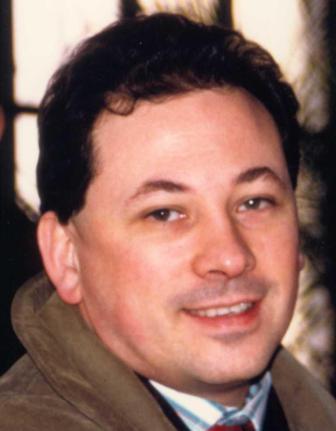
 +39 045 802 7980
+39 045 802 7980


